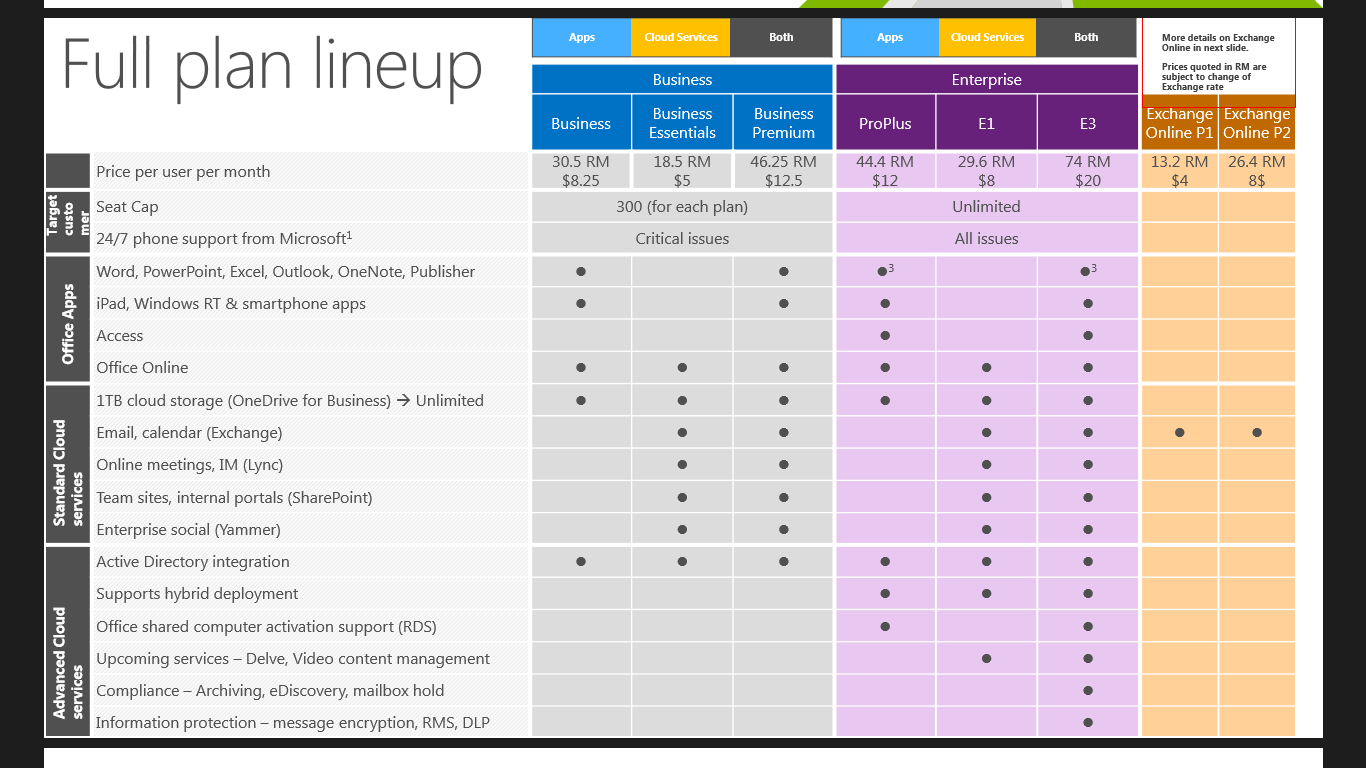
You can certainly uninstall Office 2013 and transfer the installation (and license) to another computer, but anyone who has installed Office knows that the process is time-consuming.īy comparison, Office 365 Midsize Business and Enterprise E3/E4 editions provide five licenses per subscription, allowing access to a full version of Office 2013 on up to five computers. With a traditional purchase, the business edition of Office 2013 provides one license for one computer. The big draw for SaaS is the notion of accessing documents, spreadsheets, presentations and other content from any system, anywhere. Office 2013 covers fewer endpoints per license. The SaaS model can be particularly attractive for transient or fluctuating user counts, especially in the short term. Office 365 for a midsize business is listed for $15 per month, and the Enterprise E3 and Government editions are listed for $20 per month (E4 is listed for $22 per month). Users can continue to access Office 365 as long as the subscription is current. Put your knowledge of Office 2016 to the test with this quiz, which covers the new social collaboration features, security improvements and more.īy comparison, Office 365 is the same basic product provided as a subscription-based online service billed on a monthly or yearly basis. Quiz: Prove your knowledge of the newest Office 2016 features The standard edition of Office 2013 is listed for $369, and the Professional Plus edition is listed for $499 per license. A perpetual license ensures that the buyer can continue to use the suite forever (though updates and technical support may eventually cease). For example, Office 2013 uses a traditional license model, where the software is purchased once and installed once. The biggest difference between Office 2013 and Office 365 is the way in which the software is acquired.

Office 2013 reveals different ownership models.


Ownership modelsĪn examination of Office 365 vs. Office 2013 shows the same essential tools, such as Word, Excel, PowerPoint and others, it's important to understand the major differences between them and to select the approach that's best for your organization. It also supports supplemental features that would simply be impossible with offline software.Īlthough a comparison of Office 365 vs.

Software as a service (SaaS) enables enterprises to affordably provide applications to a larger number of users.


 0 kommentar(er)
0 kommentar(er)
